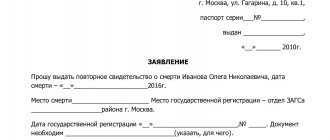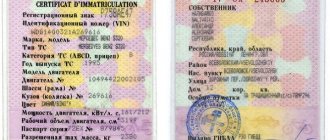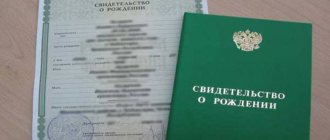4
Most transactions are subject to notarization. These include the issuance of a power of attorney, the conclusion of an annuity agreement, the transfer of debt, the written consent of the spouse to complete a transaction or a will. Additionally, citizens can certify a real estate purchase and sale agreement. Although such an action is not mandatory. But what to do if a notary refuses to certify a transaction and does not explain the reasons for such behavior? Let's try to figure out whether it is possible to appeal against the unlawful actions of a notary and how to do it.
Grounds for complaints
The notary is obliged to carry out his actions in strict accordance with the law, and any deviations from the established procedure are unacceptable. The most common reasons for a complaint include:
- deliberately delaying the period for performing notarial acts;
- unreasonable demand for additional documents;
- imposition of additional paid services;
- violation of the secrecy of performing a notarial act;
- refusal to perform a notarial act.
At the same time, it is important to understand that there are a number of situations when refusal to perform a notarial act is absolutely justified, these include:
- committing such an action is contrary to the law;
- the action must be performed by another notary;
- an incapacitated person or a representative without the necessary authority contacted the office;
- the transaction is carried out on behalf of a legal entity, but contradicts its internal charter;
- the transaction is contrary to law;
- the documents provided do not comply with legal requirements, in particular they contain clerical errors, corrections, and erasures;
- rudeness and inattention to the client.
Note!
At the request of the interested person, the notary is obliged to provide a written refusal to perform notarial acts and explain to the citizen the procedure for appealing. It should be borne in mind that the requirement to provide additional documents is often absolutely justified and changing the official will not improve the situation.
Therefore, it is necessary to file a complaint only in cases where you are absolutely sure that you are right and there is evidence of violations on the part of the specialist.
What loans can be collected with a writ of execution?
Unfortunately, people's legal illiteracy often leads to irreparable mistakes. For example, we often encounter a situation where some grandmother has been paying off her loan for years.
After all, the debt from her pension is written off automatically, and simply because she did not challenge the inscription in a timely manner. But the bank simply took advantage of the client’s illiteracy.
What loans and credits can be collected by writ of execution?
- Debts on transactions that were certified by a notary. For example, an agreement on the transfer of property or the payment of debt.
- Loan agreements, but not loans from microfinance organizations. In order for a microfinance company to be able to collect a debt through a notary, the contract must stipulate the possibility and right of the microfinance organization to apply for a notarial signature.
- Storage agreements, loans, personal saved receipts, agreements on the transfer of property to the tenant, rental agreements, and other transactions that are mentioned in Russian Government Decree No. 543.
Ministry of Justice of the Russian Federation
A complaint against a notary can be submitted to the Ministry of Justice in one of the following ways:
- Deliver it in person to the address in Moscow: st. Zhitnaya, 14.
- Send a valuable letter with an inventory and notification of delivery to the address: 119991, GSP-1, Moscow, st. Zhitnaya, 14.
- Send a letter by fax.
- Make an appointment with the head of the department for working with citizens' appeals by phone.
- Submit an application electronically using a special form at https://minjust.ru/ru/electronic-appeal.
Residents of the regions can contact one of the territorial departments of the Russian Ministry of Justice. You can find a complete list of territorial bodies on the official website of the Ministry of Justice of the Russian Federation at https://minjust.ru.
The territorial bodies of the Ministry of Justice do not have the authority to consider complaints against the actions of notaries engaged in private practice.
Notary Chamber
With a complaint about the actions of a notary engaged in private practice, the interested person must submit an appeal to the notary chamber of a constituent entity of the Russian Federation. A citizen whose rights have been violated must personally contact the notary chamber to which the specialist is assigned and submit an application.
You can find the addresses of notary chambers in the regions of Russia on the official website of the Federal Notary Chamber by going to https://data.notariat.ru/directory/chambers/.
The application should indicate the essence of the complaint and attach evidence confirming the illegality of the official’s actions.
The local Notary Chamber, together with the territorial department of the Ministry of Justice, conducts an inspection of the notary office based on the received complaint. The legislation provides for a period of 30 days for consideration of the complaint, after which the Chamber of Notaries notifies the applicant of the results of the inspection and the decision made.
There are situations when 30 days is not enough to conduct an objective audit. In such cases, the official handling the case informs the applicant about the stages of the review and indicates the time required for its completion.
If the fact of violations is confirmed, the Chamber of Notaries has the right to use disciplinary punishment against the official in the form of a reprimand or reprimand.
Arbitrage practice
The state closely monitors the activities of the notary, the Supreme Court of the Russian Federation regularly clarifies the legislation for citizens and legal entities. This is especially true for issues of guilt. The Supreme Court of the Russian Federation established that it is the designer who must prove the absence of misconduct on his part. However, prosecution may be difficult due to the official's protected status.
The Supreme Court of the Russian Federation publishes Reviews of judicial practice, where it sets out positions on disputes with notary agents. In particular, the possibility of full compensation for damages for an item that was lost due to an error in notarial actions is indicated.
A complaint is a tool for influencing violating notaries. Competent and timely drafting of a document by a lawyer will help to compensate for all losses and expenses.
Dear readers! To solve your problem right now, get a free consultation
— contact the lawyer on duty in the online chat on the right or call: +7 (499) 938 6124 — Moscow and region.
+7 (812) 425 6761 — St. Petersburg and region. 8 (800) 350 8362 - Other regions of the Russian Federation You will not need to waste your time and nerves - an experienced lawyer will solve all your problems! Or describe the situation in the form below:
Prosecutor's office
Every citizen of the Russian Federation has the right to appeal the actions of an official to the prosecutor's office. To do this, you should draw up a complaint and send it to the territorial prosecutor’s office at the location of the office.
You can find the addresses of the prosecutor's office of the constituent entities of the Russian Federation on the map at https://genproc.gov.ru/contacts/map/?DISTR=&SUBJ=.
A completed application can be submitted in one of the following ways:
- bring in person;
- send by letter by mail;
- send a request electronically using the form on the website of the General Prosecutor's Office of Russia.
Algorithm for filling out the application form:
- Go to https://genproc.gov.ru/.
- Select Internet Reception at the bottom of the page.
- Familiarize yourself with the rules for writing requests.
- Select your region of residence and department.
- Agree that the application will be completed as required.
- Then, in a new window, you will need to select the Type of Appeal - Appeal from a citizen about a violation of his rights and the Type of Appeal - Appeal of a general nature.
- Indicate your full name.
- Indicate the region of the country in which your rights were violated.
- Choose the option that is most convenient for you to receive a response – in written or electronic form.
- Provide your contact address and phone number.
- State the essence of the issue.
Note! If a decision has not been made on the application by lower-level structures, such appeals are sent to them within 7 days to verify the arguments. The complainant is informed that the complaint has been forwarded.
To speed up the consideration of the application, you should immediately send it to the website of the territorial prosecutor's office.
After receiving the application, prosecutors will check the specialist’s activities and compliance with all laws and regulations of the Russian Federation. A decision will be made based on the inspection.
Court
An interested person who considers the actions of a notary to be unlawful may file an application with the court at the location of the executive officer. This should be done no later than 10 days after the violation was committed.
The application must contain:
- Full name of the notary.
- A detailed statement of the situation in which your rights were violated.
- Evidence of unlawful actions or inactions of a notary.
An example of a statement of claim to the court can be downloaded from the link:
Sample statement of claim to court
Complaints about illegal actions or inaction of a notary are considered by district courts. The consideration of the claim in court is carried out during an open court session with the presence of both parties - the applicant and the official. At the same time, the failure of one of them to appear is not an obstacle to the meeting.
If the court supports the applicant, the notary's decision will be canceled or, on the contrary, the judge will oblige the official to perform a notarial act.
If a notary violates the rules of professional ethics, rude and unceremonious treatment, it is better to submit an appeal to the Notary Chamber.
Who has the right to complain
According to Art. 49 Fundamentals, any interested party. The legislation does not disclose a specific circle, but it can be determined in practice. An organization or citizen who has turned to notary services and sees a disregard for the law has the right to complain about the violators.
Examples:
- the heir was illegally excluded from inheritance;
- counterparties cannot conclude a deal due to abuses by the designer;
- the owner cannot register the property.
Everyone who turns to notary services is allowed to file a complaint about every unlawful action on the part of specialists. The law does not separate citizens from organizations - all subjects are equal and can equally use measures of influence on violators.
How to write a complaint
An application or claim for the work of a notary must contain the following mandatory elements:
- The name of the authority to which the complaint is being filed.
- Full name of the applicant.
- The essence of the appeal is a statement of the situation in which rights were violated. The text should contain as much specific information as possible - full name of the official, dates, addresses, etc.
- Request to an official of the court, the Chamber of Notaries or the prosecutor's office.
- List of applications that prove the validity of claims.
- Date of.
- Signature.
The text must be written in literate Russian, concisely, without expressive vocabulary.
Legal advice! For applications that will be submitted in person, a second copy of the document should be prepared. It remains in the hands of the applicant with a mark of registration with the state authority.
The legislative framework
When filing a claim, you should be guided by the following legislative acts:
- “Fundamentals of the legislation of the Russian Federation on notaries” (approved by the Supreme Court of the Russian Federation on 02/11/1993 N 4462-1) (as amended on 07/03/2016) (with amendments and additions, came into force on 07/01/2017).
- “Civil Procedure Code of the Russian Federation” dated November 14, 2002 N 138-FZ (as amended on July 29, 2017) (with amendments and additions, entered into force on August 10, 2017).
- Federal Law “On the Prosecutor's Office of the Russian Federation” dated January 17, 1992 N 2202-1-FZ (latest edition).
- Federal Law “On the procedure for considering appeals from citizens of the Russian Federation” dated May 2, 2006 N 59-FZ (latest edition).
- “Constitution of the Russian Federation” (adopted by popular vote on December 12, 1993) (taking into account the amendments introduced by the Laws of the Russian Federation on amendments to the Constitution of the Russian Federation dated December 30, 2008 N 6-FKZ, dated December 30, 2008 N 7-FKZ, dated February 5, 2014 N 2- FKZ, dated July 21, 2014 N 11-FKZ).
Private and public notaries
The fundamentals of notary legislation distinguish two types of entities: public and private.
The first designers work in offices that are under the auspices of the state. Private ones are recognized as self-employed and operate on the basis of a license. Both types of complaints can be filed.
The level of responsibility varies. “Government employees” risk receiving a penalty or being fired from their place of work, while “private owners” risk much more - a license.
At the same time, it is indicated that private notaries bear responsibility individually, while public notaries are under the auspices of the authorities.








